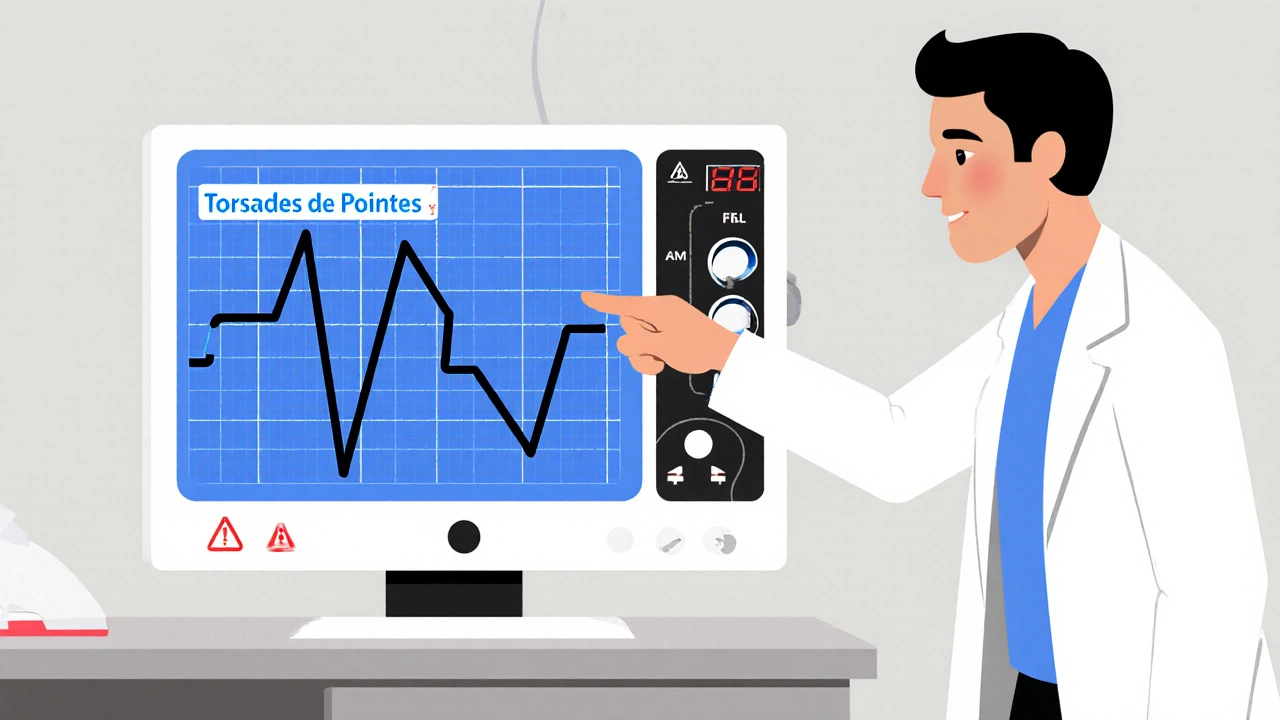QT-prolonging medications: Risks, Examples, and What to Watch For
When you take a medication, you expect it to help—not to quietly mess with your heart’s rhythm. But some common drugs, including certain QT-prolonging medications, drugs that delay the heart’s electrical recovery phase, increasing the risk of dangerous irregular heartbeats. Also known as prolonged QT interval drugs, they can trigger a life-threatening condition called torsades de pointes. This isn’t rare. It happens more often than people realize, especially when multiple drugs are mixed or when you have other risk factors like low potassium or a history of heart issues.
These medications don’t always scream danger. Many are everyday prescriptions: antibiotics like azithromycin, antidepressants like citalopram, anti-nausea drugs like ondansetron, and even some heart rhythm pills. They work fine for their intended purpose—until they start messing with the heart’s electrical timing. The QT interval on an ECG measures how long it takes the heart’s ventricles to recharge between beats. When it’s too long, the heart can skip, flutter, or worse. It’s not just about one drug. drug interactions, when two or more medications combine to worsen QT prolongation. Also known as pharmacological synergism, it’s why your doctor needs to know everything you’re taking—even over-the-counter stuff. Caffeine, for example, can make things worse by stressing the heart, and low electrolytes from vomiting or diuretics like indapamide can tip you over the edge.
Some people are more at risk—older adults, women, those with kidney or liver problems, or anyone on multiple meds. You might not feel anything until it’s too late. That’s why awareness matters. If you’ve been prescribed a new drug and your doctor hasn’t mentioned heart risks, ask. Get a simple ECG if you’re on long-term therapy. Don’t wait for dizziness or fainting. The best defense is knowing which drugs to watch for and how to avoid dangerous combinations.
Below, you’ll find real-world examples from trusted guides on how common medications interact, what side effects to track, and how to protect your heart while managing other health needs. From antidepressants that cause weight gain to diuretics that lower potassium, these posts connect the dots between everyday prescriptions and hidden cardiac risks. You’re not alone in this—many people are managing multiple meds and need clear, practical advice to stay safe.

Torsades de Pointes from QT‑Prolonging Drugs: How to Spot and Stop It
- Oct, 26 2025
- 11
Learn how to recognise Torsades de Pointes caused by QT‑prolonging drugs, assess risk factors, and apply practical steps to prevent this deadly arrhythmia.
Categories
- Health and Medicine (65)
- Health and Wellness (57)
- Medicine (37)
- Women's Health (11)
- Mental Health (10)
- Men's Health (7)
- Beauty and Wellness (4)
- Health Information (4)
Archives
- March 2026 (1)
- February 2026 (11)
- January 2026 (25)
- December 2025 (28)
- November 2025 (25)
- October 2025 (27)
- September 2025 (14)
- August 2025 (3)
- July 2025 (2)
- June 2025 (2)
- May 2025 (3)
- April 2025 (4)
- online pharmacy
- medication safety
- dietary supplement
- health benefits
- dietary supplements
- generic drugs
- prevention
- fertility
- online pharmacy Australia
- side effects
- QT prolongation
- medication side effects
- diabetes medications
- GLP-1 agonists
- nocebo effect
- brand vs generic
- treatment
- treatment options
- benefits
- connection
